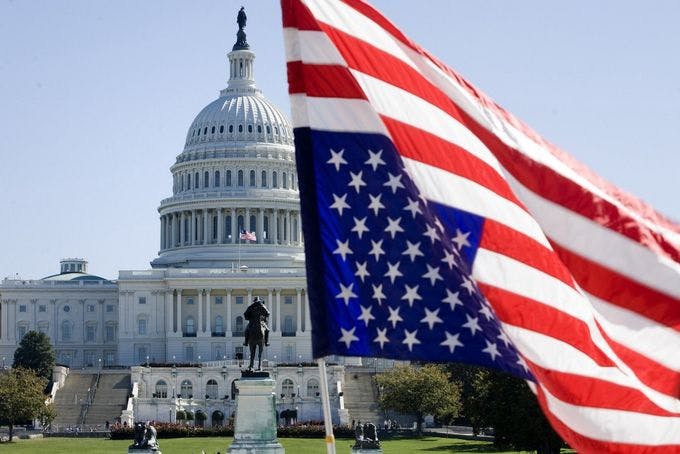Trump Putin Summit
Why everyone is freaking out about Helsinki
by Chris Thomas

There is a lot of commentary flying around right now dissecting the summit between President Trump and Russian President Vladimir Putin. Most of it — from Fox News to the New York Times — is pretty negative. The summit and the press conference that followed suggest, as The Atlantic put it, that:
Either Donald Trump is flat-out an agent of Russian interests… or he is so profoundly ignorant, insecure, and narcissistic that he did not realize that, at every step, he was advancing the line that Putin hoped he would advance
That’s strong language, but given what just transpired in Helsinki, not entirely out of line. Of course, we can’t know what was actually said between Trump and Putin as the summit itself happened behind closed doors and without anyone else present. It is difficult to overstate how irregular that is; without anyone else to attest to what transpired the substance of the meeting amounts to whatever Putin and Trump say it does.
The press conference following the summit, however, was an unmitigated disaster, shedding light on three key aspects of the Trump/Putin relationship.
1. Trump won’t say if he believes Russia meddled in the 2016 election
When a reporter asked Trump point-blank if he trusted President Putin or the entire US intelligence community, Trump said “I [asked] President Putin; he just said it’s not Russia. I will say this: I don’t see any reason why it would be.” In the same answer, he refused to ask Putin to stop interfering in US elections and refused to condemn interference in general.
This, after all four of the major US Intelligence Agencies agreed that Russia did, indeed, intervene in the 2016 election to aid the Trump Campaign and mere days after the Deputy Attorney General Rod Rosenstein announced indictments against 12 Russian intelligence operatives for their illegal activities in support of the same. The Department of Justice dropped another bombshell after the summit, charging Mariia Butina as “an agent of the Russian Federation.”
Despite all of this, however, Trump chose to take Putin’s side over that of the thousands of Americans who work in and for the US intelligence services. That, it turns out, was too much for many of Trump’s most loyal supporters to stomach.
https://twitter.com/AriFleischer/status/1018887917370998784
2. Trump sees the US as at fault for Russian/US tensions
Former US Ambassador to Russia, Michael McFaul wrote an op-ed for the Washington Post yesterday calling this shot. He wrote:
In [Putin’s] view, tensions in U.S.-Russian relations are all Obama’s fault, just like they were all the Bush administration’s fault before Obama took office
This narrative, explains McFaul, is important because it sets up the United States as the party that needs to be granting concessions. If the US messed things up then Russia shouldn’t be asked to give up anything to settle things down. Agreeing with this basic pretext for the summit makes the summit about what Trump can do for Putin rather then a meeting between equals.
https://twitter.com/mfa_russia/status/1018803468805566464
The Russia Foreign Ministry approved this position and President Trump went on to echo these sentiments in the press conference following the summit, stating that “I think that the United States has been foolish. I think we’ve all been foolish. We should’ve had this dialogue a long time ago; a long time, frankly, before I got to office.”
Not everyone in the Republican Party was so eager to blame the United States for its rocky relationship with Russia, though.
https://twitter.com/JeffFlake/status/1018891518654976000
3. Trump failed to offer any disagreement with Putin
This is a bit harder to point to but a read-through of the transcript of the press conference is enlightening. In every case in which the official foreign policy of the United States differs from that of Russia, it was Putin, not Trump, who pointed out this distinction. President Trump’s role in the press conference was, in a word, supportive. Putin spoke more, offered more detail, and generally dictated the direction of the press conference. It was as if Trump were there to play a supporting role in the drama of Putin’s coronation.
The US intelligence community was not amused.
https://twitter.com/JohnBrennan/status/1018885971104985093
Why does this matter?
The outcome of the summit amounts to a diminishing of the United States on the world stage. Simply put, this was President Putin establishing dominance over President Trump. Everything about the summit, from Trump’s vocal defense of Russia in the election hacking scandal to his silent assent to Putin’s characterization of the substance of the meeting signals to the world that it is Russian, not American power which defines the world order. The hard-fought victories of World War Two and the Cold War were set aside today. The only question is why.
Tell Congress What You Think
Foreign policy is the domain of the Executive Branch but this is historic ground. The word “treason” is being tossed around in Washington DC without any sense of hyperbole or irony. Congress is really the only check on the President that matters now. They can act to protect the Mueller investigation, impeach, halt the legislative process, refuse to confirm judicial nominees, or do all of those things. But they will almost certainly do nothing unless there is real political pressure for them to act. You can write to your Representatives and Senators by sending the word Resist to Resistbot on Facebook Messenger, Telegram, or as a Twitter direct message. If none of those work for you, Resistbot also supports old fashioned SMS: text RESIST to 50409 to get started. It takes 2 minutes to save the Republic.
Support the ’bot!
Upgrade to premium for AI-writing, daily front pages, a custom keyword, and tons of features for members only. Or buy one-time coins to upgrade your deliveries to fax or postal mail, or to promote campaigns you care about!
Upgrade to PremiumBuy Coins